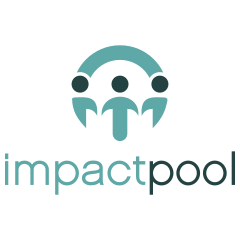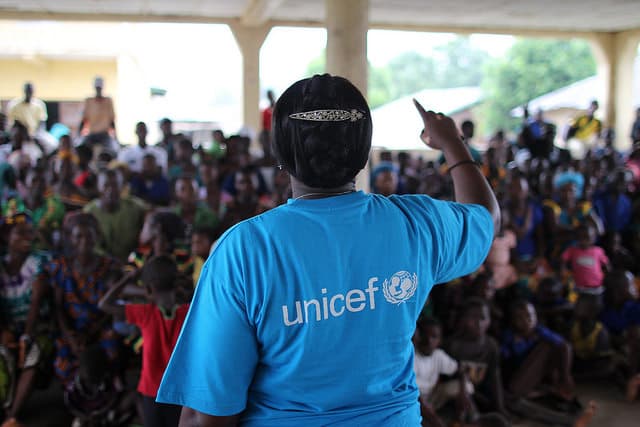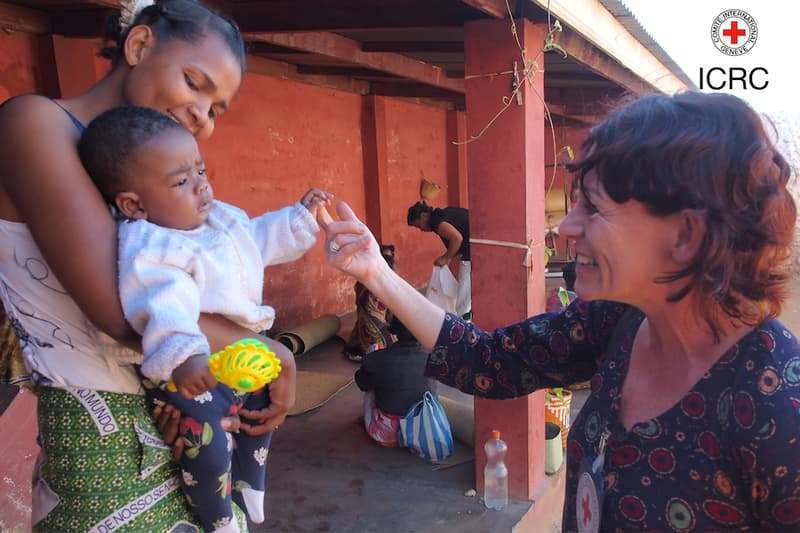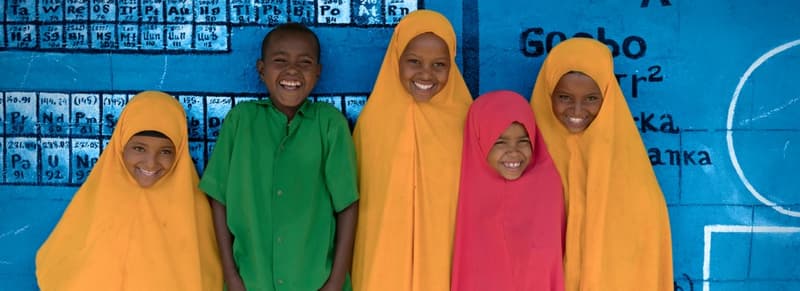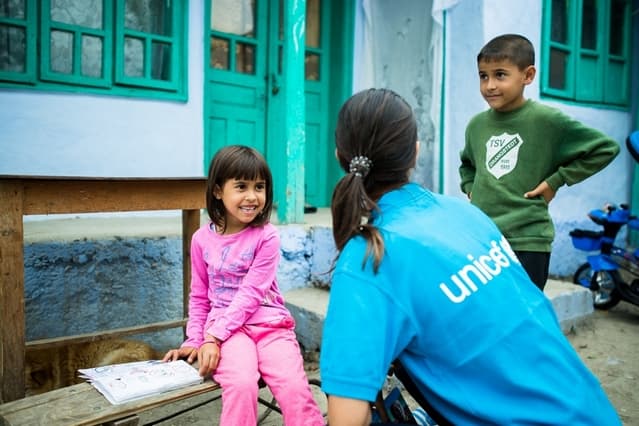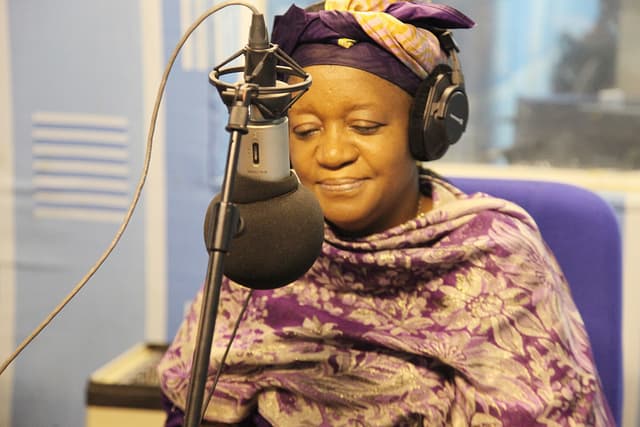International consultant to provide technical support to the Government of Kazakhstan for enhancing the targeted social assistance program
Nur-Sultan
- Organization: UNICEF - United Nations Children’s Fund
- Location: Nur-Sultan
- Grade: Consultancy - Consultant - Contractors Agreement
-
Occupational Groups:
- Political Affairs
- Democratic Governance
- Project and Programme Management
- Closing Date: 2023-12-03
UNICEF Kazakhstan Country Office is looking for International consultant to provide technical support to the Government of Kazakhstan for enhancing the targeted social assistance program
Duration: from December 2023 to 29 January 2024
Workplace: home-based
UNICEF works in some of the world’s toughest places, to reach the world’s most disadvantaged children. To save their lives. To defend their rights. To help them fulfill their potential.
Across 190 countries and territories, we work for every child, everywhere, every day, to build a better world for everyone.
And we never give up.
For every child, a fair chance
https://www.youtube.com/watch?time_continue=1&v=E1xkXZs0cAQ
Purpose of Activity/Assignment
Kazakhstan has experienced significant economic growth in recent years, leading to the establishment of a comprehensive social protection system designed to mitigate social risks. However, global crises such as the COVID-19 pandemic and the conflict in Ukraine have demonstrated certain vulnerabilities of the system and have adversely impacted the well-being of children and families.
These challenges are reflected in the ILO World Social Protection Report 2020-22, which indicates significant shortfalls in social protection coverage. For instance, nearly half of children in Kazakhstan lack effective social protection, with only 44% of women receiving maternity benefits and 8.9% of unemployed individuals receiving unemployment benefits (ILO, 2021. World social protection report 2020–22: Social protection at the crossroads – in pursuit of a better future. Geneva, International Labour Office. https://www.ilo.org/global/publications/books/WCMS_817572/lang--en/index.htm).
Additionally, while social transfer programs in Kazakhstan help to reduce poverty, with a benefit-cost ratio of 0.4, similar to the regional average (0.397) in Europe and Central Asia, significant leakages issues persist within the social protection system with a substantial percentage of non-poor individuals receiving cash transfers, especially in the categories of old-age pensions (75.3%), housing allowances (50.5%), disability benefits (44.3%), and child and family benefits (35%). Additionally, there are cases where individuals who aren't classified as poor receive means-tested assistance through the targeted social assistance (TSA) program (World Bank. 2023.Kazakhstan: strengthening public finance for inclusive and resilient growth. Public finance review. © World Bank).
In 2023, the Government of Kazakhstan has adopted Social Code. It was developed to adapt social policy to new realities, considering the challenges revealed during the COVID19 pandemic and the accumulated issues faced by the national social protection system.
Under the Social Code, the government expressed its commitment to enhance the TSA program for low-income households, including those with children. This initiative aims to transition from determining eligibility based on the subsistence level to the median income, thereby expanding program coverage to reach more individuals and families in need.
Within the framework of the Programme of Cooperation signed with the Government of Kazakhstan for 2021-2025, UNICEF provides technical assistance to the Government in carrying out these reforms. For instance, UNICEF, together with the Bureau of National Statistics, has completed an assessment analysis of the national methodology of median income for compliance with international standards. Also, estimated median income and poverty line were calculated, as well as budgetary implications for the TSA program of such a reform were assessed.
However, optimizing the targeted social assistance program's effectiveness may require adjustments to various program parameters beyond just the eligibility criterion. In line with this, UNICEF jointly with the World Bank are conducting Social Protection Diagnostic study, which is expected to provide an assessment of the effectiveness and efficiency of social transfer programs and their impact on poverty in the country. Additionally, UNICEF intends to engage an individual consultant to provide technical assistance in developing proposals for enhancing the program's parameters based on the above-mentioned study, as well as on comprehensive review of international best practices of minimum income support programs.
The primary purpose of this assignment is to provide technical support to the Government of Kazakhstan in formulating recommendations to improve the parameters of the targeted social assistance program. These recommendations should enhance the program's overall effectiveness, efficiency, targeting accuracy, benefit amount adequacy, and impact on the well-being of low-income individuals and families, particularly those with children.
The specific objectives of this assignment are as follows:
1. To analyze and summarize international best practices regarding the use of median income as an eligibility criterion for social assistance programs, with due consideration to the country context.
2. To summarize key findings of the Social Protection Diagnostic Study and highlight their relevance to the TSA program, making connections with the proposed recommendations.
3. To develop recommendations for the enhancement of the TSA program's parameters.
4. To present and discuss these recommendations with key stakeholders.
The assignment requires specific knowledge and practical experience on the subject of means-tested assistance through the targeted social assistance programs. There will be one International Travel to Astana.
Scope of Work:
Under the overall guidance of the Social Policy Officer and in consultation with the Ministry of Labor and Social Protection of Population of Kazakhstan (MLSP), the consultant will support the implementation of the following components:
1. For purposes of this ToR, analyze and summarize for decision making purpose international best practices related to the use of median income as an eligibility criterion for social assistance programs.
The main objective is to distill insights and recommendations from relevant documents, particularly “The 2022 Minimum Income Report (The report consists of two volumes, which are available at the following links: volume 1 https://ec.europa.eu/social/BlobServlet?docId=26195&langId=en; volume 2 https://ec.europa.eu/social/BlobServlet?docId=26196&langId=en) of the European Commission and provide decision-makers with a comprehensive overview of these practices to inform policy decisions.
2. Summarize key findings of the Social Protection Diagnostic Study and establish links with the proposed recommendations.
3. Based on relevant documentation, develop comprehensive recommendations to enhance the parameters of the TSA program. These recommendations should aim to optimize the program's effectiveness, efficiency, targeting precision, adequacy of benefit amounts, and overall impact on the well-being of low-income individuals and families, especially those with children.
4. Present and discuss the consolidated recommendations to key stakeholders, ensuring clear communication of the rationale and anticipated impact of the proposed enhancements, to build consensus around the proposed recommendations.
Reporting requirements:
The expected structure of the final consolidated report is outlined below:
1. Cover page
2. Executive summary
3. Acronyms
4. Introduction: An introduction section that provides an overview of the purpose of the report, the scope of the consultant's work, and any background information necessary for context.
5. Context and Background: An overview of the current state of the targeted social assistance program in Kazakhstan, including its history, objectives, and existing challenges.
6. Key Findings: A section that presents the consultant's key findings and observations related to the program. These findings should be supported by data and evidence.
7. Relevance to Objectives: An analysis of how the key findings align with the assignment's objectives, emphasizing their significance.
8. Recommendations: A detailed set of recommendations for enhancing the TSA program. Each recommendation should be clear, actionable by the government agencies, and accompanied by explanations on why it is necessary.
9. Appendices
8.1. Methodology
8.2. Any other relevant material
Additional sections
Acknowledgements
List of figures
List of tables
Notes
Bibliography
Work Assignment Overview
1. Tasks: Review of international best practices
Deliverable: Report validated by UNICEF and MLSP that summarizes and analyzes the best practices observed in other countries or regions where median income is used as an eligibility criterion for social assistance programs
Date: 15 December 2023
2. Tasks: Key Findings Summary Report
Deliverable: Validated by UNICEF a comprehensive report summarizing the key findings of the Social Protection Diagnostic Study and highlighting their relevance to TSA program including recommendations. This paper aims to provide stakeholders with a clear and evidence-based overview, allowing them to make informed decisions and consider necessary policy adjustments.
Date: 25 December 2023
3. Tasks: Presentation of recommendations
Deliverable:
1. Presentation at key stakeholders meeting done
2. Validated by UNICEF methodology (TORs) for the discussion with key stakeholders
Date: 25 January 2024
To qualify as an advocate for every child you will have…
• Education: An advanced university degree in the International Development, Economics, Social Policy, or related, with a focus on social protection and poverty reduction, discipline required.
• Experience: over 15 years of progressively responsible professional work experience in social protection related policy or programmes’ design, legislation and regulatory development, and/or research/evaluation.
• Language Skills: Proficiency in Kazakh and/or Russian, and English are requirements
• Technical competencies:
- Expertise in Social Assistance Programs: The consultant should have a deep understanding of social assistance programs, especially those relevant to the specific context of Central Asia and/or Kazakhstan. This includes knowledge of best practices, international standards, and the ability to design, adapt and implement effective programs;
- Policy and Regulatory Knowledge:
1) Strong knowledge of relevant international development and poverty reduction frameworks, such as the Sustainable Development Goals (SDGs),
2) Familiarity with the legal and policy framework of Kazakhstan's social assistance programs is an asset. This includes an understanding of relevant laws, regulations, and government policies;
- Economic and Financial Analysis: Knowledge of economic and financial analysis techniques to assess the cost-effectiveness and sustainability of social assistance programs;
- Data Analysis and Evaluation: Skills in data collection, analysis, and program evaluation are crucial. The consultant should be able to assess the impact of existing programs and suggest data-driven improvements;
- Poverty Alleviation Strategies: Expertise in poverty alleviation strategies, poverty targeting mechanisms, and ways to improve the targeting of social assistance to the most vulnerable populations;
- Public Finance Management: Knowledge of public finance management, budgeting, and financial management as it relates to social assistance programs;
- Technical Assistance Experience: Experience in providing technical assistance to governments or organizations in similar contexts. This includes a track record of successful program design and implementation;
- Cross-Cultural Competence: Ability to work effectively in an international and intercultural context, and to adapt to Kazakhstan’s context;
- Communication and Reporting: Strong communication skills, both written and verbal, to effectively convey findings, recommendations, and progress reports, and build consensus with government officials and other stakeholders.
Evaluation Criteria
Overall assessment will be made combining both technical and financial evaluation as per their weights.
Technical evaluation, including assessment of: technical competencies (CV & portfolio review), technical proposal and past performance, will be completed prior to any financial proposal being reviewed and compared. Only technical offer over the passing grade will be considered for financial evaluation. Final rating will combine both technical and financial ratings.
Stage 1: Technical Evaluation (Weight: 70%)
1. Technical Competencies (CV& Portfolio Review) – max. 50 points:
• Demonstrated expertise in social assistance programs, poverty alleviation, and relevant policy areas.
• Understanding of Kazakhstan's social assistance landscape and relevant legal and policy frameworks.
• Proficiency in economic and financial analysis techniques as they relate to social assistance programs.
• Ability to conduct data analysis, program evaluation, and impact assessment.
2. Technical Proposal – max. 30 points:
• Assessment of the candidate's technical proposal, which should include a detailed plan for how they intend to enhance the targeted social assistance program. Key components of the proposal may include:
• Clear objectives and deliverables.
• Methodology and approach applied.
• Timeline and key milestones.
• Strategies for data collection, analysis, and reporting.
• Any innovative or evidence-based techniques or solutions proposed.
• Risk assessment and mitigation strategies.
3. Past Performance – max. 20 points:
• Consultant's track record in managing and delivering similar assignments, especially in the domain of social assistance programs.
• Quality and impact of their previous work, their ability to meet the assignment’s objectives and deadlines.
Stage 2: Financial Evaluation (Weight: 30%)
Candidates must submit a financial proposal for the whole assignment based on these Terms of Reference. The financial proposal should clearly state the cost of the services for each Deliverables/Outputs as well as travel costs.
Only financial proposals that fully cover all deliverables outlined in the terms of reference will be considered.
For every Child, you demonstrate…
UNICEF's values of Care, Respect, Integrity, Trust, Accountability, and Sustainability (CRITAS).
To view our competency framework, please visit here.
UNICEF is here to serve the world’s most disadvantaged children and our global workforce must reflect the diversity of those children. The UNICEF family is committed to include everyone, irrespective of their race/ethnicity, age, disability, gender identity, sexual orientation, religion, nationality, socio-economic background, or any other personal characteristic.
UNICEF offers reasonable accommodation for consultants/individual contractors with disabilities. This may include, for example, accessible software, travel assistance for missions or personal attendants. We encourage you to disclose your disability during your application in case you need reasonable accommodation during the selection process and afterwards in your assignment.
Completion of the UN/UNICEF mandatory trainings is obligatory upon commencement of the contract.
Only shortlisted candidates will be contacted and advance to the next stage of the selection process.
All materials developed will remain the copyright of UNICEF and that UNICEF will be free to adapt and modify them in the future.
The Consultant will perform his/her duties in line with UNICEF standards and procedures.
Individuals engaged under a consultancy contract will not be considered “staff members” under the Staff Regulations and Rules of the United Nations and UNICEF’s policies and procedures, and will not be entitled to benefits provided therein (such as leave entitlements and medical insurance coverage). Their conditions of service will be governed by their contract and the General Conditions of Contracts for the Services of Consultants. Consultants are responsible for determining their tax liabilities and for the payment of any taxes and/or duties, in accordance with local or other applicable laws.
The selected candidate is solely responsible to ensure that the visa (applicable) and health insurance required to perform the duties of the contract are valid for the entire period of the contract. Selected candidates are subject to confirmation of fully-vaccinated status against SARS-CoV-2 (Covid-19) with a World Health Organization (WHO)-endorsed vaccine, which must be met prior to taking up the assignment. It does not apply to consultants who will work remotely and are not expected to work on or visit UNICEF premises, programme delivery locations or directly interact with communities UNICEF works with, nor to travel to perform functions for UNICEF for the duration of their consultancy contracts.
UNICEF has a zero-tolerance policy on conduct that is incompatible with the aims and objectives of the United Nations and UNICEF, including sexual exploitation and abuse, sexual harassment, abuse of authority and discrimination. UNICEF also adheres to strict child safeguarding principles. All selected candidates will be expected to adhere to these standards and principles and will therefore undergo rigorous reference and background checks. Background checks will include the verification of academic credential(s) and employment history. Selected candidates may be required to provide additional information to conduct a background check.
Costs indicated are estimated. Final rate shall follow the “best value for money” principle, i.e., achieving the desired outcome at the lowest possible fee. Consultants will be asked to stipulate all-inclusive fees, including lump sum travel and subsistence costs, as applicable.
Payment of professional fees will be based on submission of agreed deliverables. UNICEF reserves the right to withhold payment in case the deliverables submitted are not up to the required standard or in case of delays in submitting the deliverables on the part of the consultant
The deliverables should be drafted in Russian and in English. Priority will be given to Russian language documents first, then their final versions should be translated by the consultant into English.
All submissions should be in electronic versions (Word, Excel, Power Point, SPSS, tabulations etc.).
The financial proposal should include all possible costs related to the implementation of the tasks under the present TOR including inter-city and in-city travel expenses. UNICEF does not provide or arrange health insurance coverage. The financial proposal must be submitted in a separate file of non-editable format (e.g. PDF). Consultancy fees should be broken down to show the details for the below-mentioned deliverables. In case the bidder is a resident of Kazakhstan, please indicate VAT amount separately in your Financial Offer or clearly state if you are non-VAT payer.
UNICEF will only make milestone payment based on achievement of specific deliverables. Also note that UNICEF does not make advance payment and UNICEF is exempted from paying VAT and any other form of taxes. Two payments will be made based on the deliverables. First payment (45%) will be made against deliverable under the tasks of the Review of international best practices. Second payment (55%) will be made against deliverables under the tasks of Key Findings Summary Report and Presentation of recommendations stages. Payment of professional fees will be based on the submission of agreed deliverables. UNICEF reserves the right to withhold payment or terminate the contract in case the deliverables submitted are not up to the required standard or in case of delays in submitting the deliverables on the part of the consultant. UNICEF reserves the right to withhold all or a portion of payment if performance is unsatisfactory or if work/outputs are incomplete, not delivered, or for failure to meet deadlines (fees reduced due to late submission: 20 days – 10%; 1 month-20%; 2 months-50%; more 2 months – payment withhold).

